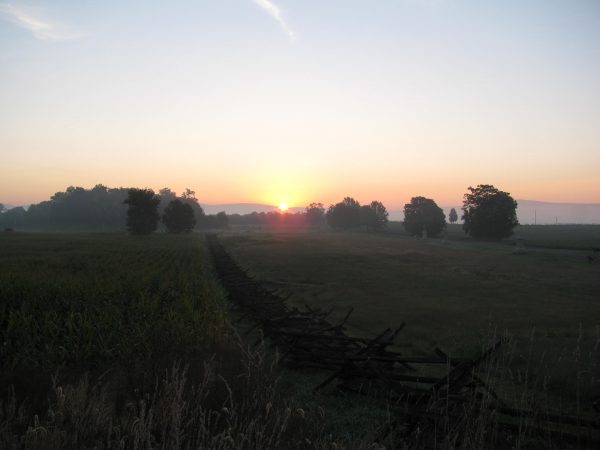From The ECW Archives: Voices of the Maryland Campaign
 Last year ECW author Kevin Pawlak shared an impressive series which highlighted primary sources from the Maryland Campaign of 1862. Running from September 1-20, the collections gives a “boots on the ground” perspective into the campaign and Battle of Antietam.
Last year ECW author Kevin Pawlak shared an impressive series which highlighted primary sources from the Maryland Campaign of 1862. Running from September 1-20, the collections gives a “boots on the ground” perspective into the campaign and Battle of Antietam.
Want to check it out for yourself since we’re in the campaign’s anniversary dates and approaching the battle date? Here’s the link to every article in the series: Maryland-62
Just curious about what happened today (September 13) during the march?
This Saturday began with the cracking of rifle fire atop Elk Ridge. From behind their breastwork, the Federals made Kershaw’s South Carolinians pay for every step they took. The combined weight of Kershaw and his reinforcements under William Barksdale and the greenness of the blue-clad defenders all contributed to the fact that by mid afternoon, garrison commander Dixon Miles watched aghast as his troops tumbled off Maryland Heights into Harpers Ferry. To the west and south, “Stonewall” Jackson’s and John Walker’s commands approached Harpers Ferry ever closer, tying the noose firmly around Miles’ neck.
And that’s just the beginning of the day’s details. Check them all out in the archived September 13th post.
Since I live in Maryland, I have always had a strong interest in this series of battles that cumulated In the horrendous bloodbath at Antietam/Sharpsburg on September 17, 1862. I have read several books and analysis’ of this campaign and I find the book written by Joseph Harsh: Taken at the Flood, Robert E. Lee and the Confederate Strategy in the Maryland Campaign in 1862, to be the most interesting and perhaps one of its premises, that Lee considered this campaign to be the last great hope for Confederate independence, the most controversial. (Its been a few years since I read this book, but I think that this is one of Harsh’s pillar conclusions.)
If this was the situation as Lee understood it in the Fall of 1862 and his effort was a complete failure and if he concluded that the last real hope for Southern independence died along with a substantial portion of his magnificent army on the rolling hills of Western Maryland, why did he continue to fight on? Based upon the results of this campaign and his understanding of the relative strengths and weaknesses of the Confederacy, should he then have composed a letter to Jefferson Davis submitting his resignation and also state in his request the reasons for his decision in relinquishing the command of the Army of Northern Virginia?
My personal opinion is that Lee did not consider the results of this campaign the death knoll of the rebellion. If he did come to this conclusion, Lee could be considered only a extender of the conflict for no real purpose. Again, if he did realize that all hope was lost after the Maryland campaign, he should have taken the honorable position and resigned. I am of the opinion that Lee, if nothing else, was a very honorable man.
Ted Romans